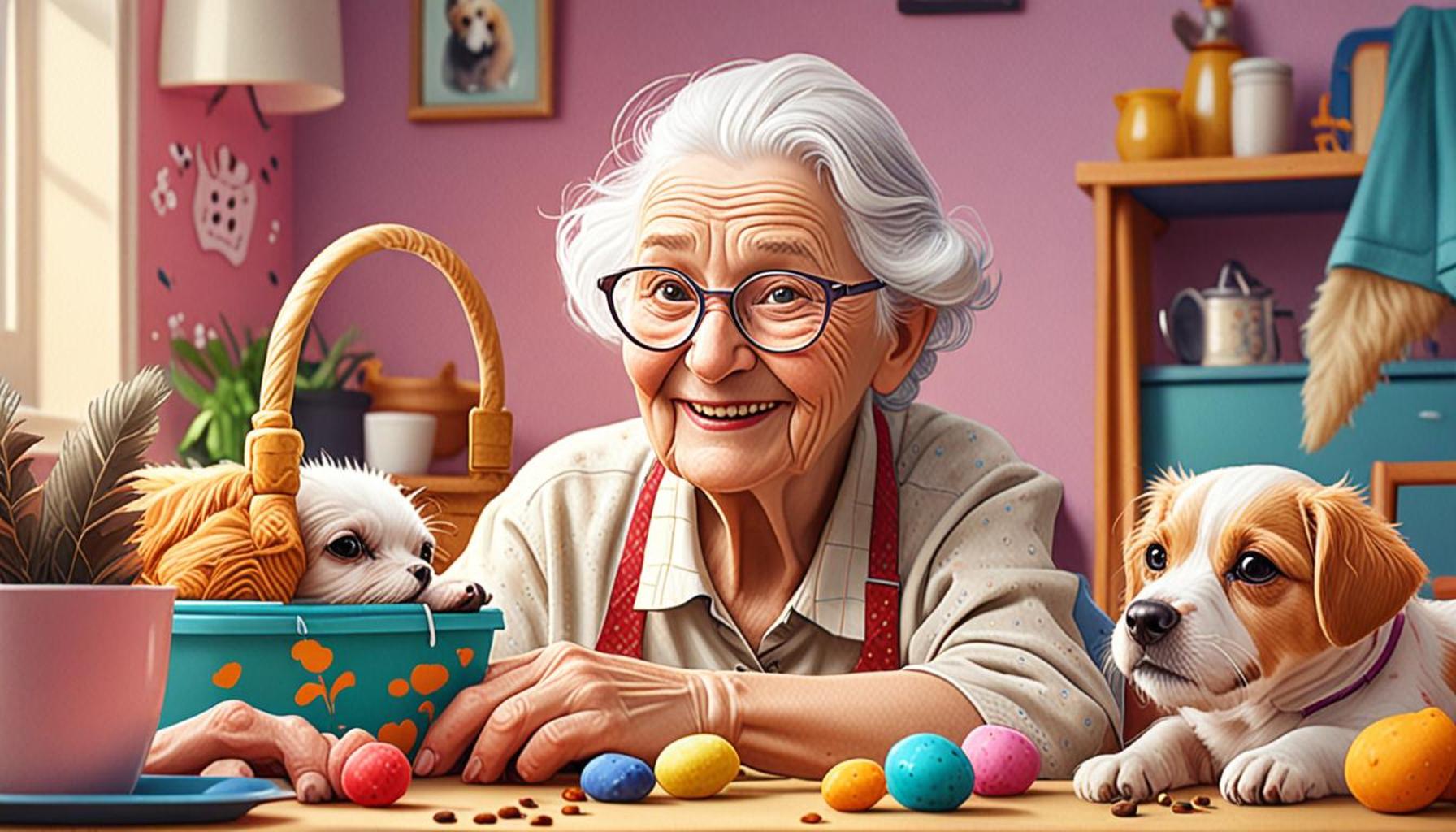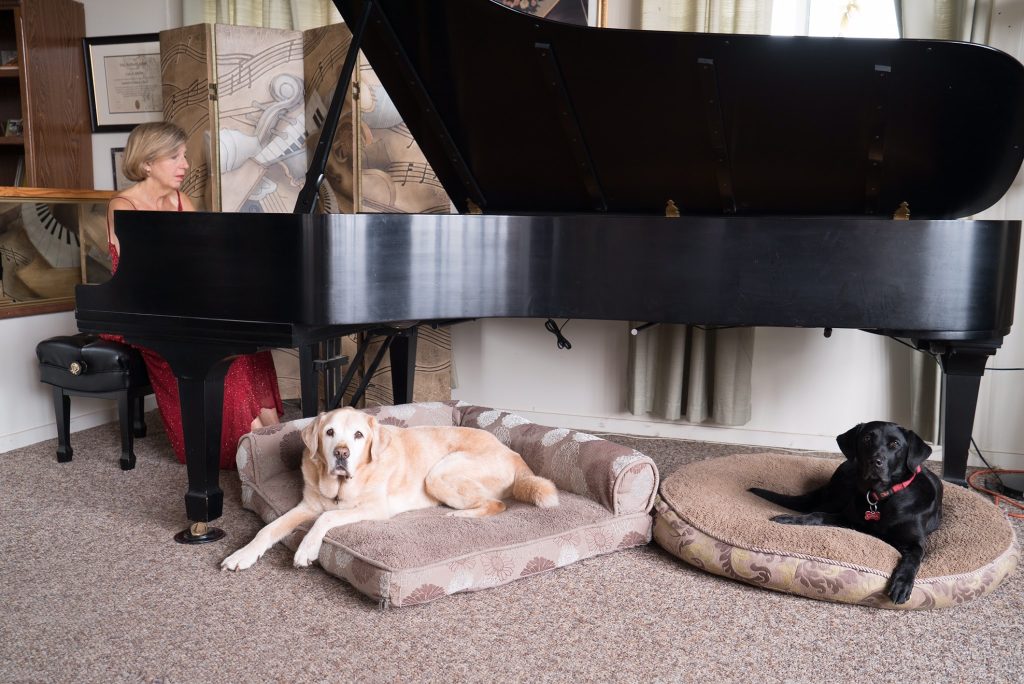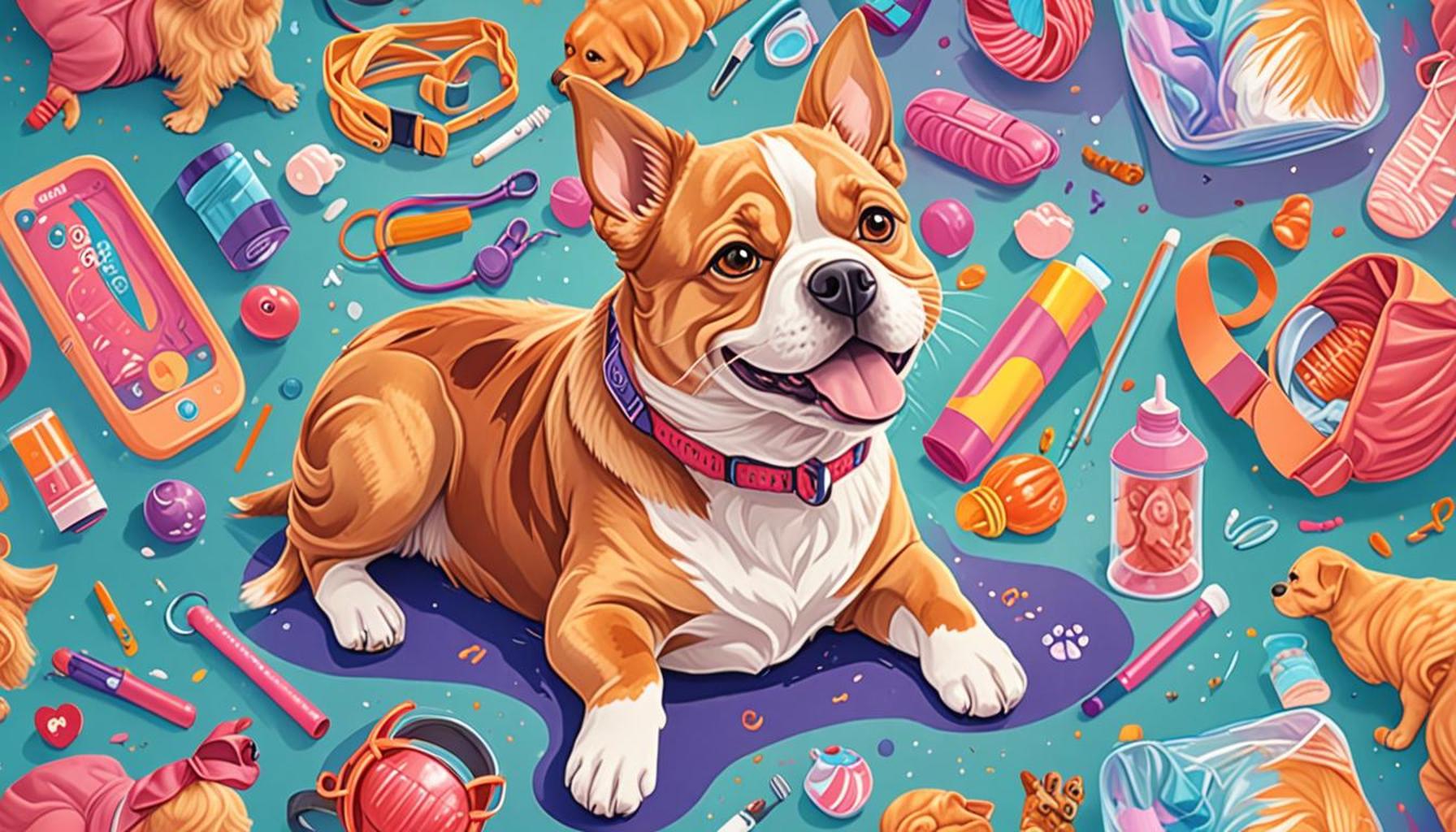Special Care for Senior Animals: Tips for Prolonging Life and Improving the Quality of Life for Your Pets

Understanding the Needs of Senior Animals
As pets grow older, their care requirements evolve significantly, requiring attention and adaptability from their owners. Aging pets often find themselves facing various health challenges that, if managed with care and insight, can lead to a longer and fulfilling life. Providing special care for senior animals not only enhances the quality of their later years but also solidifies the bond between pets and their owners, fostering a rewarding experience for both.
Senior pets encounter a host of challenges, many of which can be proactive rather than reactive. Some of the most common issues include:
- Reduced Mobility: Aging often brings arthritis and joint pain, significantly impacting a pet’s ability to move freely. This condition is particularly prominent in larger breeds such as Golden Retrievers and Rottweilers, who may experience degeneration in their joints. Simple actions, like hopping off the couch or going for a leisurely walk, can become daunting tasks.
- Dietary Changes: As a pet’s metabolism slows, its nutritional needs shift. Older animals often require diets lower in calories yet higher in fiber to maintain a healthy weight, and special nutrients like omega-3 fatty acids, which can support joint health and cognitive function. Specialized senior pet food that’s easily digestible can play a key role here.
- Increased Health Issues: Chronic conditions such as diabetes, heart disease, and kidney problems become more prevalent with age. Regular health screenings, blood work, and monitoring for signs of distress can help in early diagnosis and treatment, mitigating complications.
To navigate the challenges associated with senior pets, it’s crucial to be proactive in your approach, providing thoughtful adjustments to their routines and environments.
Consider the following tips for aiding your senior companions:
- Regular Veterinary Check-ups: Routine visits to the veterinarian for check-ups and vaccinations are vital. These check-ups can catch potential issues before they escalate, allowing for more effective treatment solutions.
- Comfortable Living Environment: Ensuring that your home caters to your pet’s needs can greatly enhance their comfort. Plush, supportive bedding helps ease joint pain, while strategically placing food and water bowls can ensure easy access. Non-slip mats on slippery floors can prevent falls and give them the confidence to move around safely.
- Gentle Exercise: Keeping a senior pet active is important, but the key is ensuring that exercise is low-impact. Short, frequent walks are ideal, aligning with their energy levels. Activities like swimming can be beneficial as they provide a joint-friendly way to maintain strength and flexibility.
By being attuned to your senior pet’s evolving needs, you can help enhance their golden years. Remember that with adequate care, attention, and love, every pet owner has the capacity to make a profound and positive impact on the lives of senior pets. Providing your aging friend with a comfortable environment and a supportive routine can lead to shared joy and cherished memories, making their twilight years a truly rewarding time for both of you.

DISCOVER MORE: Click here to learn about the latest trends
Adapting to the Needs of Senior Pets
As our beloved pets transition into their senior years, it becomes increasingly important to understand their unique needs. The aging process brings physical changes that require a thoughtful approach to care. With proper attention, senior animals can lead vibrant, happy lives well into their golden years. Here are some critical areas to focus on to ensure that each moment is cherished:
- Physical Comfort: Older pets often struggle with inflammation and joint discomfort. Investing in orthopedic beds can provide essential support to alleviate pressure on joints. Additionally, heated blankets or pads can offer soothing warmth, especially during chilly months, making rest more enjoyable for your furry friend.
- Weight Management: Maintaining a healthy weight is crucial for senior pets. Extra pounds can place undue stress on joints and lead to a host of complications. Regular monitoring of your pet’s weight paired with portion-controlled meals can make a significant difference. Consulting with a veterinarian can help establish an appropriate diet plan tailored to your pet’s needs.
- Dental Care: Oral health can deteriorate rapidly in older pets, leading to serious health issues. Regular dental check-ups, at-home teeth brushing, and dental treats can help manage plaque build-up, thereby reducing the risk of gum disease and other systemic health problems.
Recognizing subtle changes in behavior, appetite, and mobility is essential as they may indicate underlying health issues. Regular observation not only helps in timely intervention but also fosters a deep understanding of what makes your senior pet comfortable.
Creating an Engaging Environment
The environment in which a senior pet lives can significantly impact their well-being. Tailoring their surroundings to accommodate aging bodies and minds is essential for enhancing quality of life. Here are some adjustments you can consider:
- Accessible Layout: Minimize obstacles in the home that may cause trips or falls. Ensure that stairs have secure railings, and consider using ramps for easier navigation, especially for larger pets that have difficulty jumping.
- Stimulating Activities: Keeping a senior pet mentally active is just as vital as physical exercise. Introducing puzzle toys, interactive games, and gentle training sessions can keep their brain engaged while providing a fun outlet for energy.
- Social Interaction: Senior pets can benefit greatly from consistent social interaction. Consider arranging playdates with other gentle pets or organizing family visits. This engagement can prevent loneliness and promote emotional health.
By implementing these adjustments to care and environment, you can significantly enhance your senior pet’s quality of life. It’s about creating a lifestyle that respects their limitations while promoting health and happiness. Remember, proactive care and a loving atmosphere can lead to many cherished moments as you navigate the aging journey together.
| Category | Key Features |
|---|---|
| Nutritional Needs | Senior pets require a diet rich in antioxidants, vitamins, and essential fatty acids for optimal health. |
| Mobility and Exercise | Gentle, regular exercise tailored to their ability can significantly enhance joint health and overall lifespan. |
| Regular Vet Check-ups | Frequent health assessments help early detection of chronic conditions which is crucial for treatment planning. |
| Social Interaction | Emotional well-being is vital; regular interaction can combat loneliness and stress. |
As pets grow older, their nutritional needs change dramatically. It’s essential to focus on a diet that meets their specific requirements, incorporating plenty of antioxidants to fight free radicals. Key nutrients such as omega-3 fatty acids play a critical role in maintaining joint health, which is often compromised in senior animals. Incorporating regular, gentle exercise into their routine is equally important. Not only does it boost their physical health but it also enhances their emotional state, proving crucial for aging pets. Additionally, early detection of health issues through regular veterinary visits can greatly improve the quality of their lives, allowing for more tailored treatments. Social interaction should not be overlooked; a well-rounded care regime involves mental stimulation and companionship. By addressing these aspects adequately, you can significantly improve the lifespan and enhance the quality of life for your senior pets, making their golden years truly enjoyable.
DISCOVER MORE: Click here to learn how volunteering can change lives
Nutrition and Dietary Adjustments
As pets age, their nutritional needs shift significantly. It’s critical to recognize that senior animals often require a different diet compared to their younger counterparts. This shift is essential for maintaining health and preventing chronic conditions. Here are several considerations:
- Quality Ingredients: Opt for high-quality, nutrient-dense foods that contain easily digestible proteins and a balanced ratio of fats, carbohydrates, vitamins, and minerals. Look for senior-specific pet food that supports their unique metabolism and energy levels.
- Hydration: Senior pets can be prone to dehydration, especially if they have certain medical conditions. Ensure fresh, clean water is readily available at all times. Wet or canned food can also increase fluid intake while providing essential nutrients.
- Special Diets for Health Issues: If your senior pet has specific health concerns, such as kidney disease or arthritis, consult with your vet about tailored dietary solutions. Specialized diets can manage conditions and reduce complications, ensuring your pet’s nutrition aligns with their health needs.
By being diligent about their diet, pet owners can help fend off obesity, maintain muscle mass, and support overall health in their senior animals.
Regular Veterinary Care
Committing to frequent veterinary check-ups is vital in the care of senior pets. Ideally, you should schedule visits at least twice a year. Regular evaluations can lead to early detection of potential health issues, thus allowing for timely interventions. Here are some focus areas during these visits:
- Routine Blood Work: Regular blood tests can monitor organ function and detect issues such as diabetes or thyroid problems before they progress into more severe conditions. This preventative measure can prolong the lifespan and enhance the quality of life.
- Vaccinations and Preventive Treatments: Senior pets may require updated vaccinations, as their immune system becomes less effective with age. Additionally, keep up with preventive measures for parasites, such as fleas, ticks, and heartworms, which can be more troublesome in older pets.
- Health Monitoring: Discuss any behavioral or physical changes with your veterinarian. Changes in eating habits, increased thirst, lethargy, or unusual behavior can indicate underlying health problems that need attention.
Proactive veterinary care fosters a trusting relationship between you and your veterinarian, which is immensely beneficial in understanding your senior pet’s evolving needs.
Emergency Preparedness
Finally, being prepared for emergencies is a crucial aspect of having senior pets. Senior animals can become ill more rapidly, so it’s important to have a plan in place:
- Emergency Kit: Create a pet emergency kit that includes your pet’s essential medications, dietary needs, and medical records. Include items like a first aid kit and contact information for your veterinarian and nearby animal hospitals.
- Know the Signs of Distress: Familiarize yourself with the signs that indicate your pet may need urgent medical attention, such as difficulty breathing, excessive vomiting, or signs of severe pain. Being vigilant can help you act swiftly in critical situations.
- Transportation: Ensure you have an accessible and comfortable means of transporting your senior pet should an emergency arise. This also means having a pet carrier that is easy to use and spacious enough to accommodate your pet’s comfort.
With adequate nutrition, regular veterinary care, and emergency preparedness, you can significantly enhance the quality of life for your senior pets. These actions not only promote their well-being but also enable you to enjoy every cherished moment together.
DON’T MISS: Click here for essential insights
Conclusion
In summary, the journey of caring for senior pets is both a responsibility and a rewarding experience. By understanding and addressing their unique needs through proper nutrition, regular veterinary check-ups, and emergency preparedness, you can significantly enhance their quality of life and potentially extend their years. As beloved family members, senior animals deserve specialized care that acknowledges their changing health requirements.
Engaging with high-quality, nutrient-dense diets tailored to their age, alongside routine health assessments, keeps them feeling their best. Remember, every moment spent with a senior pet is precious; your attentiveness not only improves their well-being but also strengthens your bond. Be proactive in monitoring their health and understanding the subtle changes that come with aging—this vigilance can lead to early intervention and better outcomes.
As you implement these strategies, consider reaching out to communities or online resources dedicated to senior pet care for additional insights and support. Educating yourself further on the specific needs of aging pets allows you to advocate for their health more effectively. Ultimately, with the right approach and a loving touch, you can truly make a difference in the lives of your senior animals, ensuring that their golden years are filled with comfort, joy, and companionship.


